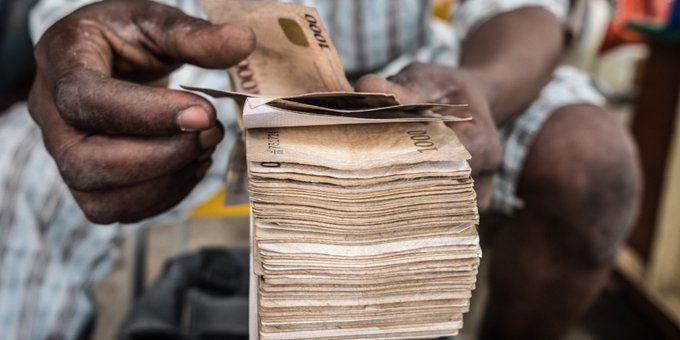Shareholders of companies decide on the dividends they receive at the Annual General Meeting (AGM). They can take hard decisions on the management of the enterprise, including disengagement of the directors of the companies, who are saddled with the responsibility of overseeing the affairs of the company in trust on behalf of the shareholders.
Except when there is an opportunity for an extra-ordinary general meeting, once shareholders approve the dividend and every other resolution at the AGM, they relinquish their powers and rights to the management and board of the company to run the affairs of the enterprise.
- Buhari urged to sign NYSC Trust Fund Bill into law
- 2 killed as ‘illegal’ petroleum dump explodes in Lagos
However, there is always another AGM, where shareholders can vote out incompetence and conflicted interests. That is not far from what democracy affords. Electorate give legitimate powers to politicians to run the affairs of the state, and they have a chance every four years to revalidate or rescind their decision on those elected to manage the state.
Nonetheless, many Nigerians often claim that their votes do not count and many a time the winners are not reflective of the wish of the majority because elections are rigged. Yes, there have been several pieces of evidence of electoral malpractices by different parties, and the party with the best rigging structure often wins the game. Expectedly, recent procedural changes by the Independent National Electoral Commission and the amended Electoral Act may change that narrative going forward.
The coming of the Electoral Act (as amended), with the provision for electronic transmission of results, has come as a game changer, against manual collation, which has historically been flawed with frauds and manipulations. So, it’s not all bad for Nigeria’s democracy; some baby steps forward, and it’s better late than never. I am hoping our desperate politicians won’t hack the system to intercept results or corrupt the process again.
However, as we celebrate the improvement, it’s sad that politicians have elevated yet another vice to our democratic process – vote buying! This is perhaps worse than what we are trying to correct, and this atrocity is not solely the invention of the politicians; it is indeed promoted by the electorate. After all, it takes two to tango. Without a seller, there can’t be buyers. It is quite worrisome that some voters would claim that they collect money from multiple parties, yet vote for a candidate of their choice, a convenient excuse for someone who sold his/her soul to the “devil”.
How can someone admit to being an armed robber but claim he has never stolen a kobo. When you collect money from any of the political parties, you have lost your moral and perhaps statutory right to question how the winner of the election uses the power you sold. It does not matter whether the party which bought your vote won or lost; the fact is that you have willingly leased your legitimate right for four years, so you cannot eat your cake and have it. That is why only adults vote; it is clear that making an electoral decision has consequences and it is a responsibility you must bear, not just for yourself but also for your dependent children, as you decide on their behalf.
Yes, it’s getting increasingly difficult for politicians and their cronies to rig elections, but it is sad that the voters are now colluding with them to elevate a worse practice of buying votes, as shown by watching videos and comments on vote buying in the recent elections in Ekiti and Osun states. This speaks to the fact that our problem is not just leadership. We have a major problem with followership. Indeed, we mould many of the politicians into the monsters that they are today. After all, they are just doing what the majority of us want so that they can win elections by hook or crook.
It’s worrisome that voters are no longer interested in discussing issues at campaigns, rather campaigns are now more like music concerts, with each party hiring influential musicians to pull crowds. Imagine when a gubernatorial candidate pays N10, 000 each to over 400, 000 voters to buy their votes, he spends N4 billion.
But that is not the only cost he incurs. Candidates spend money hiring musicians and other logistics for a campaign, pay the party agents, pay for media and public relations, and do not forget the cost earlier of buying the delegates et al to win a primary election. Before a politician wins an election, there is an accumulated “investment” as many politicians would call it and they are sure to recoup their costs with significant returns.
How can we expect any meaningful development from a state governor that has spent several billions of naira to get to the government house? How can you justify your request for infrastructure development when you sold your vote to him and he duly paid for it? It is only fair that you allow him to be, and perhaps, you need to be grateful for any little social or capital infrastructure he implements while in office, as he gets busy harvesting dividends for himself and his cronies.
After all, you received your dividend of democracy upfront when you sold the vote to him. So, stop blaming politicians alone for the failure of our democracy. It takes two to tango and we, the electorate, are perhaps guiltier of the offence. If we want good governance, we have to make it easier and cheaper for politicians to get to the office and that is when we can hold them accountable. Selling your vote is the worst way of getting your dividends of democracy. Worst still, you are not just short-changing yourself when you sell your vote; you expose all of us. So, stop selling your votes, and there would be no buyers!

 Join Daily Trust WhatsApp Community For Quick Access To News and Happenings Around You.
Join Daily Trust WhatsApp Community For Quick Access To News and Happenings Around You.


